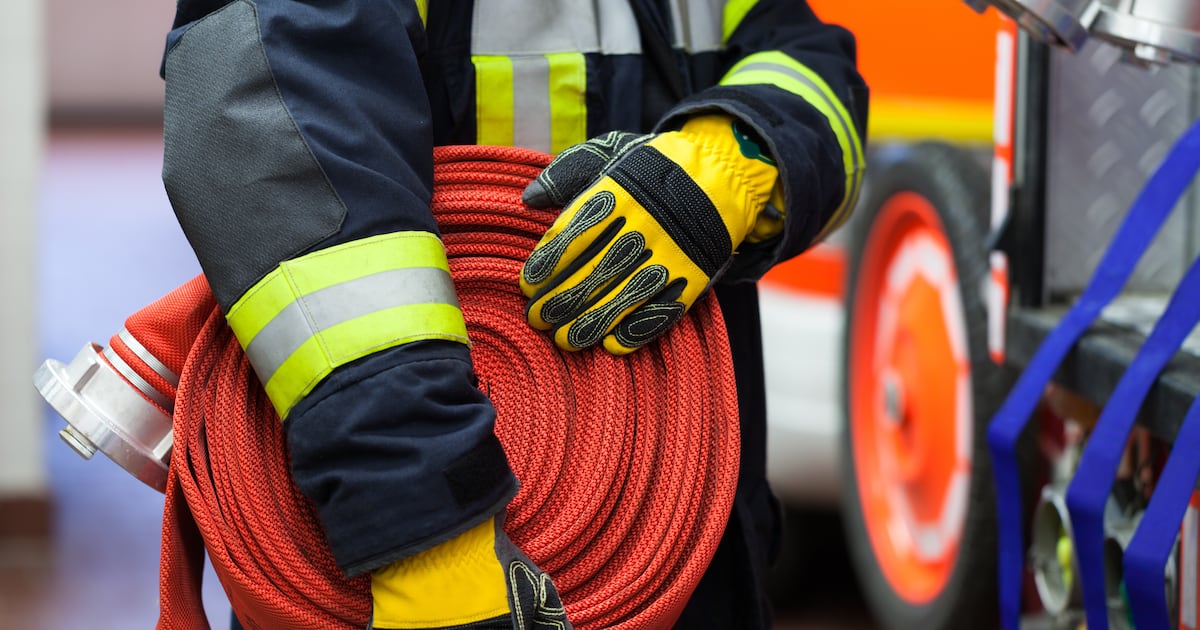Slow evacuation drills, locked doors, overcrowding, fire doors wedged open and blocked fire exits have been flagged as safety concerns at International Protection Accommodation Service (Ipas) centres.
A review by The Irish Times of all available reports for inspections on Ipas facilities so far this year found fire-safety concerns were raised in respect of more than 50 accommodation centres.
It comes after a suspected arson attack at an Ipas centre in Drogheda, Co Louth, which left children traumatised. There were no fire-safety concerns raised in the 2024 inspection, the most recent report available, of the Drogheda accommodation centre.
Of the dozens of accommodation centres where fire-safety concerns were raised in inspections this year, more than 20 were flagged for the way they carried out fire drills – with most being criticised for very low participation rates.
Many people living in such centres are in employment, with most often not on site during drills. Some inspections also raised concerns about how long evacuations took.
An inspection of the Knockalisheen accommodation centre, Co Clare, said “it shouldn’t take 15 minutes” to evacuate 18 people.
A spokeswoman for Aramark Ireland, which runs the centre, said “18 were on site at the time of the drill and participated in the fire drill. Fire drills take place across the centre every month”.
A report of an inspection of a large accommodation centre said that of the 350 people living there just 141 were present and able to participate in the fire drill. The inspection report said a fire drill that took 18 minutes to evacuate more than 140 people was “concerning”.
Another fire drill in a Dublin centre took 30 minutes and involved just 11 people, while a centre in the midlands took the same amount of time to evacuate 35 people.
An inspection of the Sailor’s Rest accommodation centre, Co Donegal, said a 25-minute evacuation for 86 people was “excessively long”.
The manager told The Irish Times that after that fire drill in January “procedures were further strengthened” and the next one in March saw more than 120 people evacuated in six minutes.
A number of inspection reports raised concerns about overcrowding in some accommodation centres, which was also flagged as a fire-safety issue.
At one Ipas centre in Dublin, overcrowding and clutter in rooms were cited by an inspector as fire-safety concerns. Eight people shared one room, which was divided by a row of storage units that blocked direct access to the exit.
Another centre had fire doors propped open on the first floor, with two fire doors removed from toilets on another floor.
A report of an inspection of the Blarney Stone guest house, Cork, on April 22nd said overcrowding was a “major issue”. The inspection also noted “a lack of fire-safety signage highlighting the exit route on the top floor of the centre”. The guest house was approached for comment.
At the Ballybrit accommodation centre, Co Galway, an inspection found “fire doors were constantly being propped open by residents during the inspection”.
“Two fire exits are also located within bedrooms. During the inspection one of these was slightly blocked,” the inspection report also said. The centre was approached for comment.
An inspection of a separate property found an emergency exit was locked, with a key on a chain next to it. The report also noted the doorway to the exit was blocked by a vacuum cleaner.
Two separate inspections found the upper floors of accommodation centres had just one unprotected staircase available as an escape route in case of a fire.
An inspection of a group of apartments in the northeast, which had been contracted to international protection applicants, found each unit had a fire extinguisher and a blanket. “However, due to small children gaining access to extinguishers, some are moved and not readily available if required,” the inspection report said.
Inspectors also identified fire risks from a number of e-scooters being charged indoors in the corridors of some accommodation centres.
Aramark, which operates the Knockalisheen centre, Co Clare, said it was now Ipas policy not to allow e-scooters on site.
In centres without self-catering kitchen access, inspectors often found evidence of cooking equipment in bedrooms. This was also identified as a fire risk.
One inspector found a “full makeshift kitchenette” in the bathroom of one bedroom. “This needs to be removed immediately as it is a fire hazard,” the report said.
The Department of Justice said an inspection report was “a snapshot in time” and said issues documented in a published report may have already been resolved.
It said it could cancel a contract when it was not satisfied with accommodation. It has done so for 21 contracts in the last year, the department said.

